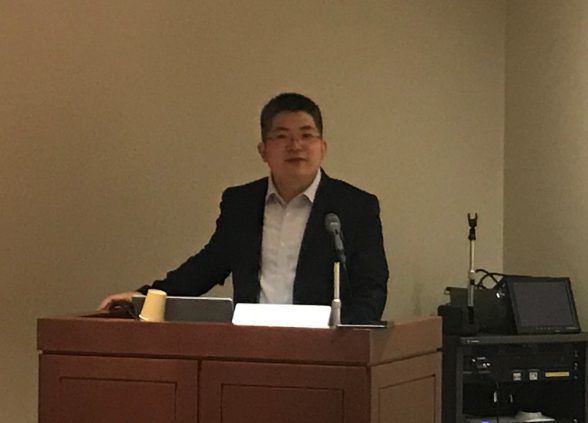Chinese AI Principles: Policy, Technical Explorations, and the Future
- Date:Mon, Dec 09, 2019
- Time:13:30-15:30
- Location:Gallery 1, Ito International Research Center (B1), The University of Tokyo
- Language:
English
- Capacity:
30
- Hosted by:
Institute for Future Initiatives, The University of Tokyo, AIR
In this talk, I will synthesize and analyze Global AI Principles, providing a perspective on how they are complement with each other, instead of competing with each other, and discuss how the principles from industries, NPO&NGO, and governments are similar and different from each other. In the global context, I will discuss several Chinese AI Principles, on how they are formed, related, and how they can go into subdomains and be technically grounded into reality. By making discussions on the difference of data-based AI and mechanisms-based AI, I will talk about potential risks for different paths of Artificial General Intelligence, and will discuss principles for AGI and Superintelligence.
- 13:00Doors open
- 13:30Opening remarks
Arisa Ema, Assistant professor, Institute for Future Initiatives, the University of Tokyo
- 13:35-14:30Lecture “Chinese AI Principles: Policy, Technical Explorations, and the Future”
Professor Yi Zeng, Professor and deputy director at Research Center for Brain-inspired Artificial Intelligence, Institute of Automation, Chinese Academy of Sciences, a Professor at University of Chinese Academy of Sciences
- 14:30-15:30Q&A
Yi Zeng is a Professor and deputy director at Research Center for Brain-inspired Artificial Intelligence, Institute of Automation, Chinese Academy of Sciences, a Professor at University of Chinese Academy of Sciences. He is a board member for the National Governance Committee of Next Generation Artificial Intelligence, Ministry of Science and Technology China. He is the Director for the Research Center on AI Ethics and Safety, Beijing Academy of Artificial Intelligence, and Co-director for China-UK Research Centre for AI Ethics and Governance. He is in the Expert Group on the Ethics/Governance of Artificial Intelligence in Health, World Health Organization (WHO), and is also a member for the World Economic Forum (WEF) Global Future Council on Values, Ethics and Innovation. His major research interests focus on Brain-inspired Artificial Intelligence models, AI Safety, Ethics, and Governance.
Homepage: http://bii.ia.ac.cn/~yizeng/
On December 9, 2019, Professor Yi Zeng of the Chinese Academy of Science gave a seminar. The title of the lecture was “Chinese AI Principles: Policy, Technical Explorations, and the Future.” In his talk, he synthesized and analyzed Global AI Principles, providing a perspective on how they are complementing each other, instead of competing, and discuss how the principles from industries, NPO&NGO, and governments are similar and different from each other.

In the global context, he discussed several Chinese AI Principles, including Beijing AI principles released on May 2019, and how they are formed, related, and how they can go into subdomains and be technically grounded into reality. Also, by making discussions on the difference of data-based AI and mechanisms-based AI, he talked about potential risks for different paths of Artificial General Intelligence and will discuss principles for AGI and Superintelligence.
In the Q&A session, several questions are raised by the audience. The questions are such as, what are the characteristics of Chinese AI Principles compared with other principles, what was the response from industries and academics to the principles, and how to consider the feasibility of AGI and how to communicate the difference between existing technology and future technologies such as AGI to the general public?
China has made remarkable progress in the research and development of AI technology, and it also has shown a presence in terms of AI governance. It will become important for Japan to reconsider its contribution to the world regarding AI governance.
Written by Arisa Ema, Institute of Future Initiatives